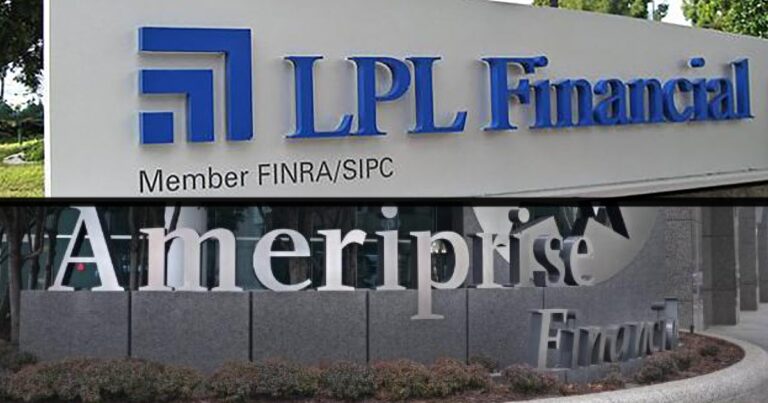The hits keep coming in the legal brawl between Ameriprise and LPL Financial.
In the past week, Ameriprise has accused LPL of colluding with advisors to “undermine” a previously-agreed-upon order to search those advisors’ phones for potentially private client information.
Meanwhile, LPL is urging Ameriprise to allow a limited search of the devices, arguing that Ameriprise’s refusal “should not impede a straightforward and commonsense approach” to data privacy issues.
The back-and-forth follows a motion filed by advisors who left Ameriprise for LPL, asking the court to pause an order affirmed by the two parties during an ongoing lawsuit. The advisors argued they weren’t party to the agreement to search their personal devices, and LPL is now supporting the motion.
But in Ameriprise’s opposition filed Wednesday, the firm claimed the advisors’ argument was “yet another tactic, coordinated by LPL and the anonymous advisors, to either delay or disrupt the parties’ original agreement” in the stipulated order asking LPL to mandate that advisors submit to searches of their devices.
“LPL did not oppose the anonymous advisors’ motion, despite the fact that LPL agreed to this relief months ago and consistently assured Ameriprise that it would secure its registered representatives’ cooperation and compliance with the Stipulated Order,” the Ameriprise motion read.
LPL’s support for their advisors (and Ameriprise’s opposition) is the latest development in a conflict between the two firms that continues to expand in scope.
Ameriprise first filed suit last year, accusing advisors who left their firm for LPL of illegally retaining private client information when they resigned. Both LPL and Ameriprise agreed to retain a “forensic examiner” to investigate the claim (including a potential search of advisors’ devices).
However, 10 affected advisors (whose names are redacted in court documents) claim they were caught in the crossfire between the firms without having agreed to such a search.
“It is disconcerting that the court-ordered review by LPL has yet to take place, and that client data may still reside on certain advisors’ personal, unsecured devices, which is dangerous and unacceptable,” an Ameriprise spokeswoman said, in a statement. “This latest move further delays our efforts to protect clients’ confidential and most sensitive data and raises additional questions about what the parties might be withholding.”
In previous court filings, Ameriprise opposed the advisors’ names being redacted, claiming privacy concerns didn’t override a public right-to-know. The advisors fired back, accusing Ameriprise’s response of “dripping with personal vitriol” and saying the firm had compared the advisors to “criminals, called them hypocrites and suggested that they deserve to be publicly shamed.”
Amid this back-and-forth, LPL agreed to drop a separate defamation claim against Ameriprise, which accused the rival firm of sending misleading notifications to LPL clients about potential data breaches.
Ameriprise claimed it had a duty to send the breach notices, as former Ameriprise advisors moving to LPL could have exposed clients’ personal information. Earlier this month, LPL agreed to drop the suit with prejudice, though it reserved the right to pursue the defamation claims in FINRA arbitration.
In its own filing supporting the advisors submitted Wednesday, LPL claimed it had agreed to the order to search the phones “in good faith,” saying some advisors had collated some client information on an Excel spreadsheet during the transition from Ameriprise (though LPL claimed the advisors did so legally and with Ameriprise’s consent).
While LPL says it has no reason to believe there is a risk to client privacy, it nonetheless agreed to help delete a spreadsheet it claims has “no ongoing utility.” Since then, LPL has argued that Ameriprise insists on a “maximalist and one-sided interpretation” of the order.
However, LPL claims the advisors have agreed to allow a forensic examiner to delete the spreadsheet from their devices and is asking Ameriprise to proceed with this limited action.
“While Ameriprise insists the advisors should do more (and further insists LPL has the ability to ‘force’ them to do so), there is no reason to delay taking the steps that all parties agree upon,” LPL argued.
“LPL’s limited proposal – to delete only the spreadsheet that aggregated all the misappropriated data – is a half measure that falls far short of meeting the objective set forth in the Federal Court order,” the Ameriprise spokeswoman said.





